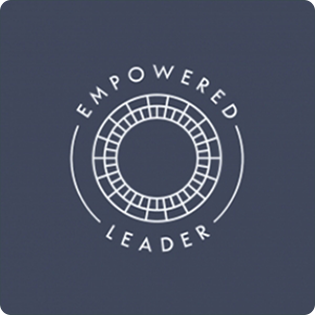There is no one size fits all when it comes to leadership. At its essence, leadership is a set of individual skills and behaviours that are adopted by each person differently. A style of leadership that may work for one, may be a disaster for another. The key here is take the time to be understand who you are and how you operate. Only then will be you able to start influencing the way you lead yourself and others.
That being said, there are some (not many) universal truths when it comes to leadership. It’s important to acknowledge this.
Below, I’ve outlined 5 of what I think are the most important leadership myths to dispel, especially if you’re early in your leadership career.
Leaders need to have all the answers
In 2023 and for decades prior, good leaders, effective leaders, were and are aware of their limitations. They clearly understand and accept that success is a team sport, it’s at attitude rather than a destination. Leading a successful team requires diversity of thought, skills and experience. It’s a combination of each person bringing their own expertise to share and learn from. Building and leading a team that is cooperative and collaborative and that can support one another by developing a suite of multi-disciplinary skills is a team that will provide the answers for themselves and each other.
The days of a single person needing to know the answer to something at a single point in time are behind us. A great leadership will build a sense of trust, ownership and shared accountability to get the right answer.
Leaders are born not made
Cue the eye roll. This has been a misnomer crafted in the early 20th century if not before. I’m not denying that some people in the world have the natural traits and talents of leadership, leadership is a suite of skills, behaviours and talents that enable you to influence effectively. By that I mean influence yourself and others.
These skills, behaviours and talents though can all be learned over time.
The complexity of the leadership and business landscape requires diversity in leadership meaning rarely are two styles of leadership the same. They may be based on similar philosophy’s such as Democratic leadership or Transformational leadership styles – but their delivery will differ depending on the individual.
My humble and personal belief is that leaders are a combination. They have an aptitude for people and an attitude for excellence.
Leaders are the only people in charge
While it’s definitely true that leaders hold positions of authority, often it’s formal due to the role and title. Not to take anything away from those leaders who’ve earned those positions – but leadership can also be demonstrated informally by someone who takes initiative, inspires team members or takes the time to create positive change. This has got more to do with personal power and how these people view themselves alongside peers and colleagues.
Leadership is the culmination of collaboration and cooperation between team members who feel their contributions, strengths and skills are appreciated in the overall success of the team. This doesn’t require formal authority, rather it requires empowerment and distribution of responsibility.
Leaders work smarter, not harder
Let’s face it, leaders are smart. They wouldn’t or shouldn’t be in their roles if they aren’t. However, in my book, there are two kinds of smart: technical smart and human smart, a good leader is a balanced combination of technical expertise and competence as well as human skills a.k.a. emotional intelligence.
Leaders do work smart, they need to. Often their schedules are demanding and their timelines are compressed. More often than not they’re also juggling multiple priorities. This is where the human smart comes in – they build trust in their team and are able to delegate some tasks so they can focus on other important tasks and objectives. They also prioritise their time, set clear boundaries with themselves and others. They encourage and empower people within the team become leaders, take responsibility and share in the benefits.
All of this requires hard work and making difficult sometimes uncomfortable decisions. I think at the end of the day we would all like to think that if we worked smarter, we’ll get the role or career that we want. The truth is, you will – but will also have to work hard for it too.
Leaders are always ‘on’
‘Restore connection is not just for devices, it’s for people too. If we cannot disconnect, we cannot lead’ Arianna Huffington.
As I mentioned before, leaders do need to work hard and at times this can be for extended periods or under intense pressures. Even if this is not the case, it’s important to take time out for reflection, regeneration and reconnection with yourself. Resilience is one of the most valuable attributes of great leadership and it requires time and intention to be topped up. Recent studies have shown that resilience is not static that it waxes and wanes throughout life’s cycles and needs attention to be appropriately repleted.
Disconnecting, not just from your laptop but also mentally and emotionally from your work enables you to refresh your thinking and bed down your inner wisdom – which is the place you will need to lead from when you’re back at your desk.
Self-care in leadership is an important priority to schedule in regularly. What’s also important that is that your self-care is giving you what you need to fill your cup. Download my free guide here on how you can pinpoint your selfcare needs and then meet them so you can recharge more effectively, sooner.
These myths are just the tip of the iceberg. Depending on who you talk to and their perspective there are others out there.
The key takeaway here is that leadership is a personal attribute and skill that will differ between people, sectors, industries and stages of career. Leading authentically can be difficult in some professions and it’s these professions that need often need this style of leadership the most. Human centred.
Regardless of where you are at on your leadership journey, develop the courage to be yourself. Take the time to invest in style of future leader you want to be by leading others in a way that feels authentic, ethical and credible to you.
Liz Ellis is a certified Leadership and Performance Coach, Master Practitioner of Neurolinguisitic Programming and Conscious Hypnosis and a Practitioner of Timeline Therapy. She is founder and Principal Coach at Empowered Leader, a practice that supports leader to overcome challenges in their role and bumps along the road in their career by reconnecting to their vision and purpose.

